Obesity at the United Nations - People step up where political leaders fail to
In less than one month, global leaders will convene at the United Nations for the 4th High-Level Meeting on Non-Communicable Diseases (NCDs).
Once again, they have an opportunity to act decisively on one of the defining health challenges of our century affecting over 1 billion people: obesity. Sadly, what humanity needs and what the Declaration will deliver are once again far apart.
Not only has the latest draft of the Declaration continued to narrowly define obesity using old data and exclusion from healthcare, it appears to have dialed back wider NCD ambitions. Yet the obesity community has stepped up, with strong calls for coordinated action and a greater number of events around the UN focusing on obesity, including the Global Obesity Forum and the UN Interagency Taskforce on NCDs awards recognising leaders across the globe.
The latest draft of the Political Declaration (the main outcome document of the meeting) is virtually silent on obesity. Despite overwhelming evidence that obesity is a chronic, complex disease, driving 43% of type 2 diabetes cases, up to 78% of hypertension, and over 13 cancer types, it is mentioned only in references to prevention policies that, while helpful, are far from sufficient and overlook the critical role obesity and overweight play in driving other NCDs, ensuring that people living with overweight and obesity will remain invisible in health systems until they present with comorbidities.
This is not just a missed opportunity.
It is a dereliction of duty by governments to fulfil the Right to Health. Without meaningful action, we risk leaving half the world behind - 4 billion people will be affected by overweight and obesity by 2035.
Without comprehensive action as set out in the WHO recommendations, including integration of obesity into primary healthcare, we will see avoidable deaths, spiralling healthcare costs, and widening inequities, particularly in low- and middle-income countries.

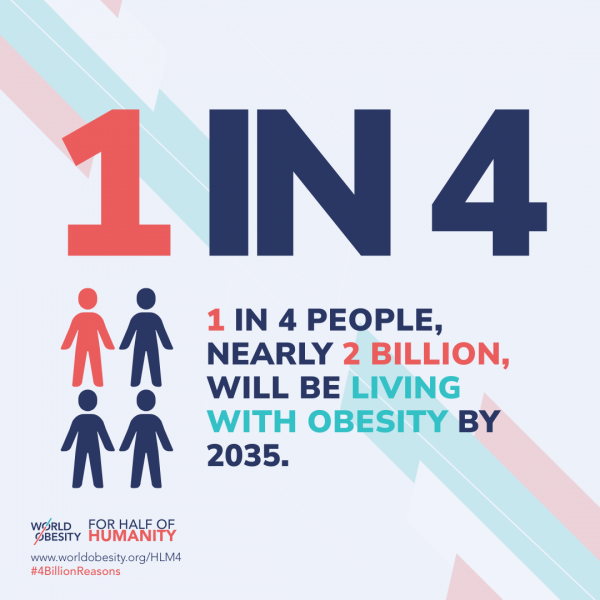
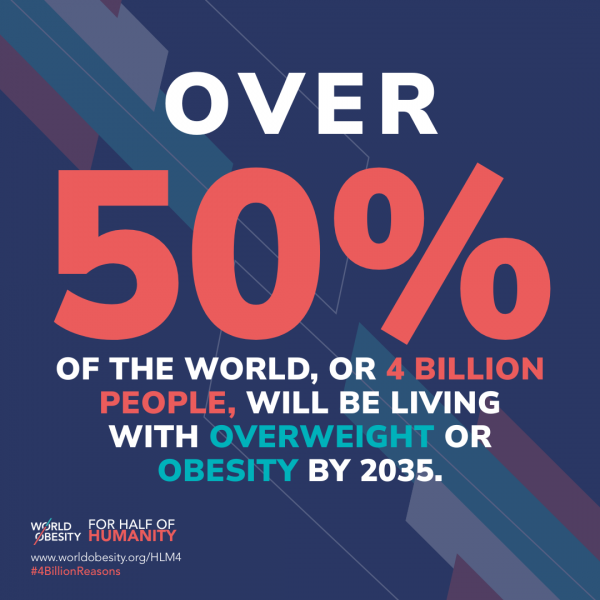
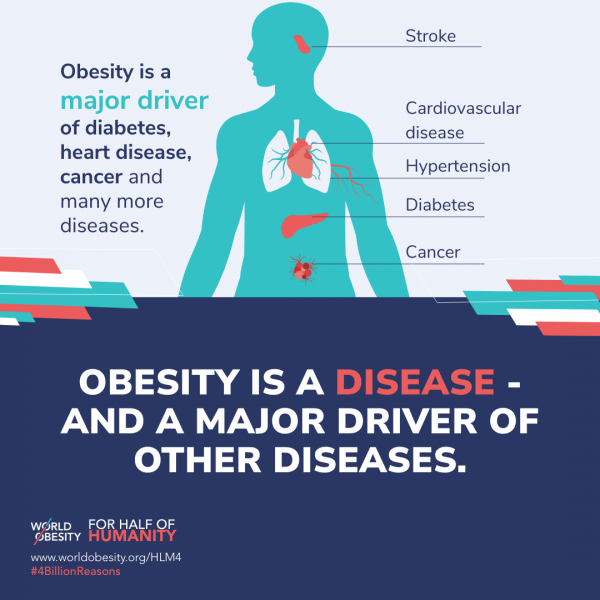
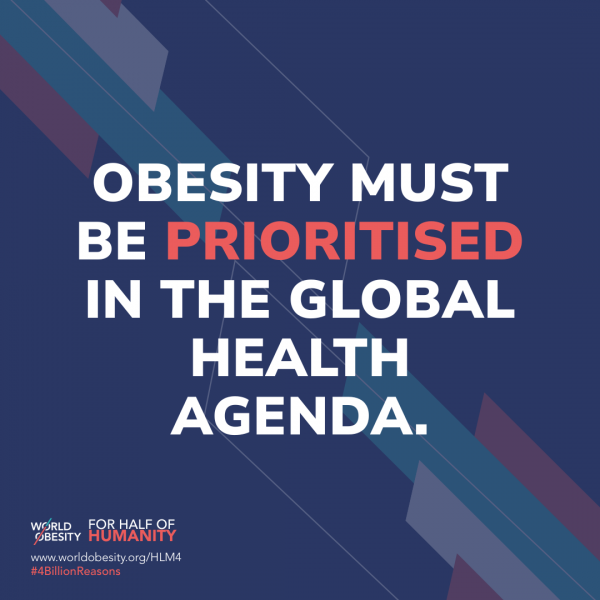
Yet we have much to build on, with engagement of people ranging from ministers of health to lived experience advocates to changemakers working in food and for children, calling on action and finding ways to collaborate, recognising that policymakers cannot claim progress in NCDs while ignoring obesity and other NCDs. To be credible, the political declaration must:
- Acknowledge the full scale of the epidemic, with over 1 billion people already affected.
- Recognise obesity as a chronic, multifactorial disease that drives multiple other NCDs.
- Commit to implementing WHO’s 2022 recommendations, including integrating obesity into primary healthcare.
The choice is stark. Continue with 'business as usual' and leave half the world behind, or demonstrate bold leadership by acting on the most pressing, yet neglected, NCD crisis of our time.
The critical window is closing. We must act now.
For half of humanity
Find out how you can join the call for urgent, united action on obesity. Explore resources, key messages, and advocacy tools in our For Half of Humanity campaign toolkit - and help ensure no one is left behind.
VIEW OUR CAMPAIGNRelated News
View all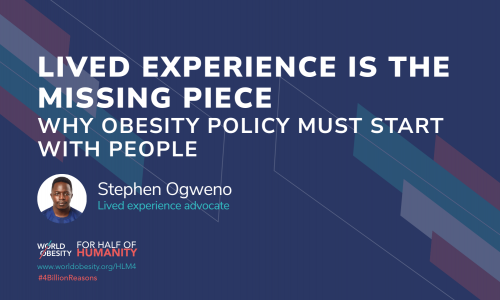
News Blog Aug 13, 25
“Lived experience is the missing piece” - Why obesity policy must start with people
For half of humanity: Stephen Ogweno explains why obesity policy must start with lived experience to drive real change.
Read Post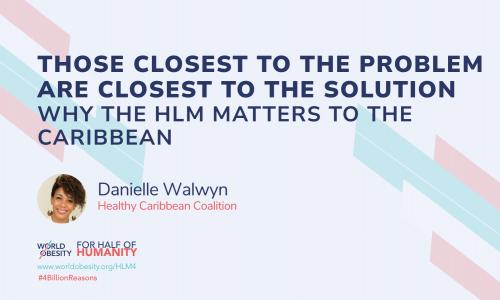
News Blog Aug 19, 25
“Those closest to the problem are closest to the solution” - Why the HLM matters to the Caribbean
Danielle Walwyn, of the Healthy Caribbean Coalition, explains why the High-Level Meeting is a key moment to act.
Read Post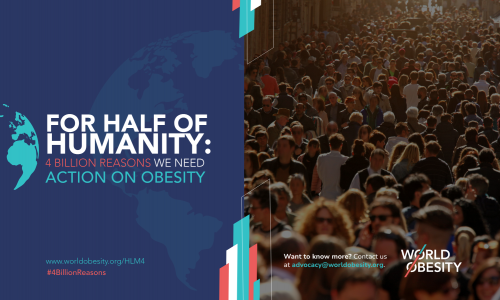
Aug 01, 25
For Half of Humanity: Four billion reasons we need action on obesity
Obesity affects over 1 billion people and will impact 4 billion people - half of humanity - by 2035 if we fail to act.
Read Post